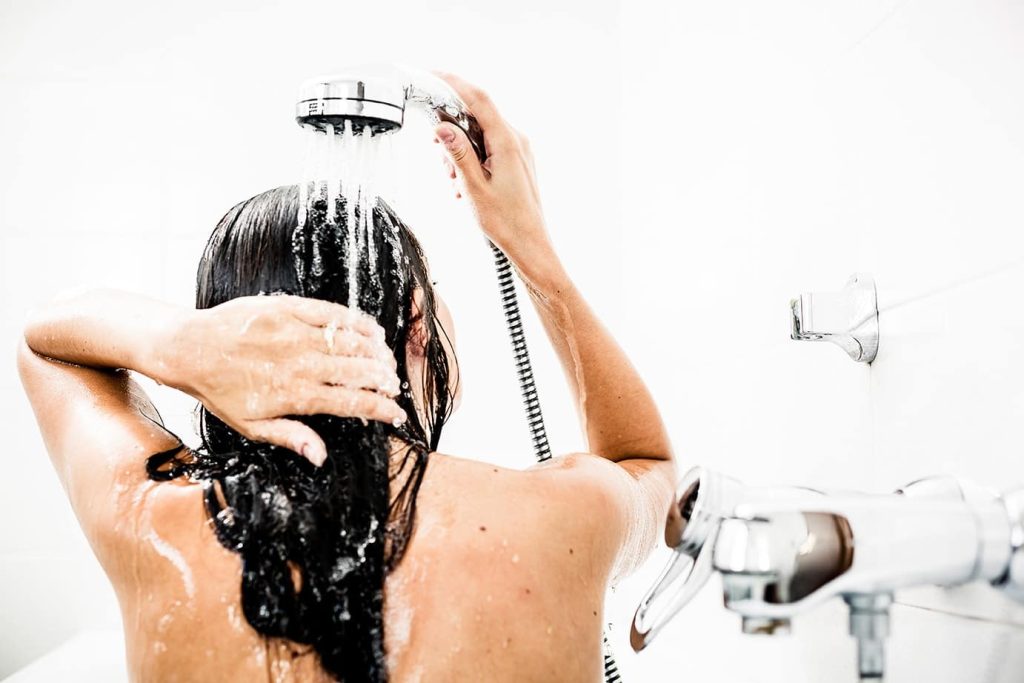Over eighty-five percent of the water across the United States is full of minerals like calcium and magnesium, which make water hard. These hardness minerals create deposits on everything the water touches, including your clothing and other laundry. These deposits make it difficult to get your clothing completely clean, which can make your laundry feel stiff and look dingy and yellow. There are, however, ways to reverse the effects of hard water on laundry. If you live in a hard water area, here’s what you can do when washing your clothing: Use powdered detergent, take extra care when washing cloth diapers, or use a water softening system.
Use Powdered Detergent
Powdered detergent has more built-in water softeners than liquid detergent does. These water softeners can prevent residue from building up on your clothing, and they can stop clothing from becoming discolored and stiff.
Take Extra Care When Washing Cloth Diapers
Hard water and soap deposits on clothing will substantially reduce the life of fabrics (including your expensive fabrics) and leave large quantities of lint in your lint catcher. While hard water adversely affects all clothing, it’s especially problematic for cloth diapers.
When mineral deposits build up on diapers, the deposits trap bacteria. This bacteria, which creates an ammonia-like smell, can cause rashes and burns. Hard water build-up also negatively impacts the absorbency of a diaper by trapping trap detergent residue, causing soap suds to stay on a diaper long after they should be washed away.
To keep bacteria from forming on diapers, use the proper amount of detergent for your load size: too much, and detergent will trap bacteria and make the diaper less absorbent, as mentioned above; too little detergent on soiled diapers can leave behind unhealthy residue on the diapers.
Additionally, make sure to use the appropriate amount of water for your load size. Do not use too much water, because cloth diapers need the friction of other diapers rubbing against them to get properly cleaned. Extra rinse cycles are not recommended in hard water because they can
redeposit all of the hard water’s minerals onto the diapers or clothes. Too much water or an extra rinse cycle can prevent diapers and clothes from getting thoroughly cleaned.
Use a Water Softening System
While powdered water softeners can remove some residue, only a water softening system will solve the problem. An
effective water softening system like a Kinetico Water System will neutralize the hard water’s pH level, remove minerals present in the water (including iron, calcium, and magnesium), and eliminate odors from water. Furthermore, a some Kinetico water softeners feature a carbon pre-filter, which removes chlorine from the water as well, which damages rubber plumbing parts, tastes unpleasant, and prematurely degrades resin, the softening media.
The water softener uses an ion-exchange process to soften the water. In this process, resin beads are used to exchange calcium chloride and magnesium for sodium chloride. The minerals stay attached to the resin beads, ready to be flushed away during the water softener’s regeneration cycle. This process creates softer water. When you use a water softening system, all of the minerals that can build-up on your clothing will be filtered out, delivering clean, stain-free clothing.
Using soft water can reduce soap usage by 70% to 80%, and you can use milder cleaning agents as well—not just on laundry, but in the dishwasher, shampooing hair, cleaning surfaces like shower doors, fixtures, and tile, granite, and marble surfaces.
Hard water can make it difficult to get your clothing as clean as you want and need it to be. If you want softer clothing that’s free of all soapy residue and mineral build-up, start using a water softener today! Call De Anza Water Conditioning at 408.371.5521 or email us at
[email protected] for a
free, no-obligation water test and consultation.

Water Systems